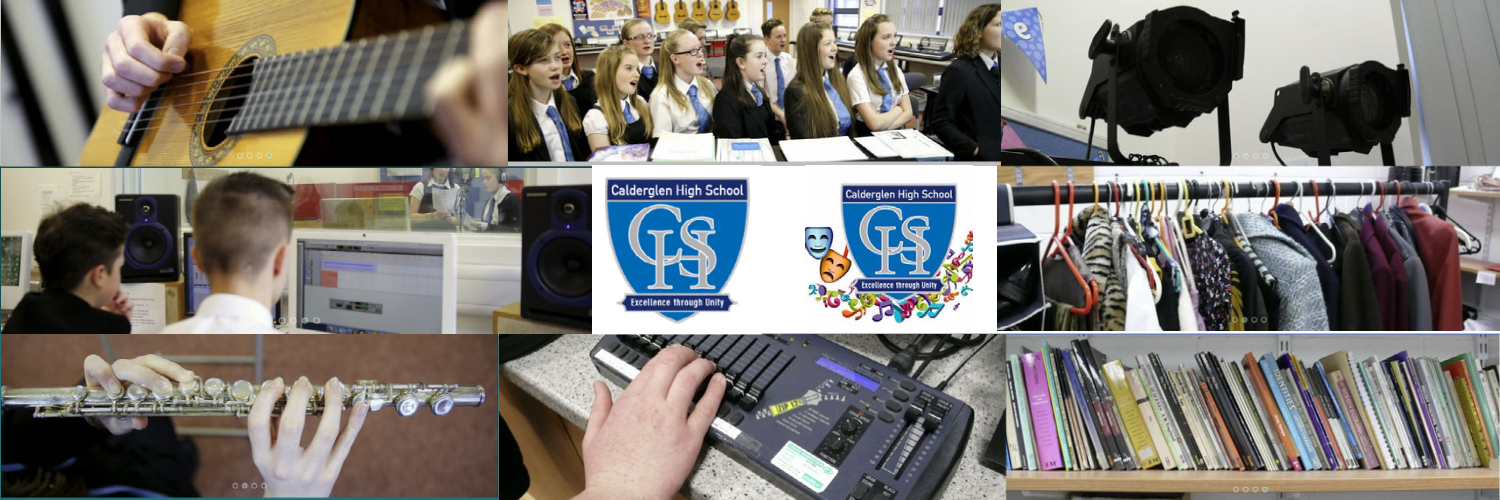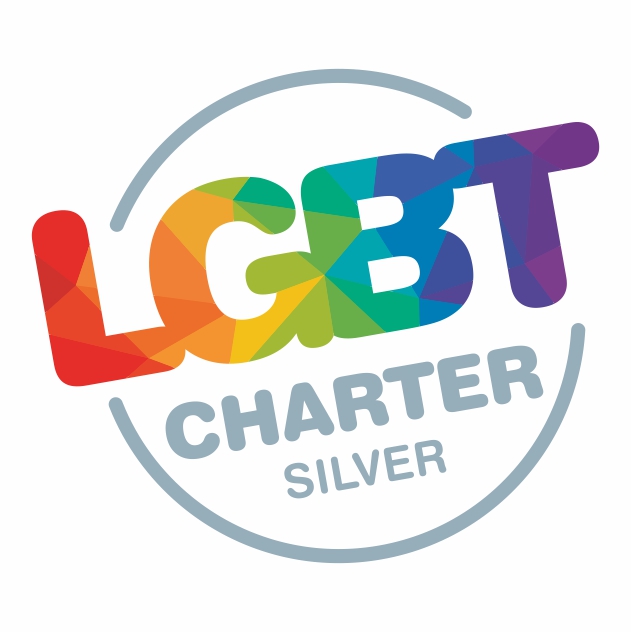Drama

Drama Staff
- Ms K Blackwood (Faculty Head - Tues/Wed & DHT - Tiree House Thurs/Fri)
- Mr R Paterson (Acting Faculty Head Mon/Thurs/Fri)
- Mr I Mossman
- Mrs E Waddell
- Mrs A McKenzie
Why Choose Drama?
Drama develops skills and knowledge that are extremely useful in the wider contexts of both school life and beyond. It is difficult to imagine any job that does not involve communication with other people. Drama helps you to become confident and competent in speaking with others and in dealing with the public.
S1-2
Pupils will be given the opportunity to develop a performance. They will work in groups to discuss and use a range of drama skills to portray characters.
Units of work include:
-
S1 – Improvisation, Performance Skills, Character, Drama Conventions, Mime Skills, Theme Unit and Script
-
S2 – Improvisation, Characterisation Skills, Form, Structure and Devices, Theatre Arts Technology, Television, Script and Directing and a Theme Unit
S3
In S3 all pupils will follow a Drama course as part of a Broad General Education, covering Level 4 outcomes and experiences. During S3 pupils will also overtake some of the National 4 and National 5 outcomes.
Further details of units and course content can be obtained from:-
https://www.sqa.org.uk/sqa/47386.html
https://www.npfs.org.uk/wp-content/uploads/2013/03/nutshells_drama_N4_E.pdf
Assessment of Course
The course will be assessed throughout the session by teachers as appropriate to the subject and level of study. Assessments may include a combination of practical work, examinations and projects.
Progression
At the end of S3 pupils will progress to a course leading onto a qualification at National 3, National 4 or National 5.
At the end of S4 pupils could choose from the following progression routes:
- A pupil achieving National 3 may progress to National 4
- A pupil achieving National 4 may progress to National 5
- A pupil achieving National 5 may progress to Higher
Homework
Written homework will be issued regularly. Visits to the theatre will also be arranged and we would expect pupils to attend these trips.
Senior Phase
The Drama department offers National 5, Higher and Advanced Higher courses.
National 5 / Higher and Advanced Higher
The National 5 course develops the skills and experience gained in National 4 Drama. Entry level recommended for National 5 is an award of PASS at National 4.
Pupils without National 4 Drama may be considered at the discretion of the department. As Drama is a group based subject, a reasonable capability for group work and creativity would be expected. Maximum attendance is also very important. Absences can affect individual attainment as well as the work and achievement of others.
The course has three units and a written exam
1. Drama Skills.
The Drama Skills unit is mainly practical work. Pupils work in groups to create a piece of drama which is performed to an audience. Each pupil is responsible for writing and directing one of the scenes in the drama. Workbooks and written assignments accompany this unit.
2.Production Skills.
This unit takes a closer look at the technical side of theatre production. The pupils choose 2 aspects of theatre such as costume, props, lights, sound and make-up and help to create a piece of work focusing on their chosen areas. They are also required to perform in this unit. As with unit 1, workbooks and written assignments accompany this unit.
3. Production.
In this final unit, pupils are required to concentrate on one aspect of theatre, either as an actor or in a technical role and work towards a final, large piece of work which is presented to a visiting examiner. This piece of work along with all the written evidence from this unit counts towards 60% of the pupils’ final grade: 50% on the actual performance and a further 10% being added by a written “Preparation for Performance Log”.
4. Written Exam.
The written exam is in two parts. In part one, the pupils are required to answer questions based on a performance they have completed in class (10 marks).Part two asks questions about a drama which pupils will have created from a choice of three suggestions included in the exam paper (30 marks).The written paper constitutes 40% of the final grade.
Pupils will be expected to work on their own initiative and take responsibility for areas of the course.
Higher Drama
This course in Drama develops the skills and theory learned during the National 5 course. Entry level recommended for this course is a pass at “C” or above in National 5.
Pupils without National 5 experience may be considered if they have sufficient theatrical knowledge. Maximum attendance is requested as absences can affect individual attainment as well as be detrimental to the work and achievement of others.
There is a requirement for candidates to see and conduct analysis of at least one piece of live theatre which will form the basis of study for 50% of the final written examination.
The course consists of three units.
1. Drama Skills.
The Drama Skills unit is mainly practical work. Pupils work in groups to create a piece of drama which is performed to an audience. Each pupil is responsible for writing and directing one of the scenes in the drama. Workbooks and written assignments accompany this unit.
2. Production Skills.
This unit takes a closer look at the technical side of theatre production. The candidates choose 2 production roles: acting and one other from a selection of costume, props, lights, sound and make-up and help to create a piece of performance work, focusing on their chosen areas. As with unit 1, workbooks and written assignments accompany this unit.
3. Higher Performance.
In this final practical assessment, candidates are required to present work to a visiting SQA assessor. This work can be either as an actor or in a technical role. If choosing an acting role, candidates are required to perform two contrasting roles from two different texts. This piece of work along with all the written evidence from this unit counts towards 60% of the pupils’ final grade: 50% on the actual performance and a further 10% being added by a written “Preparation for Performance Log”.
4. Written Exam.
The written exam is in two sections. In section one; candidates are required to answer questions based on a set text. Section two will require analysis of a performance that the candidate has seen. The written paper constitutes 40% of the final grade.
Pupils will be expected to work on their own initiative and take responsibility for areas of the course.
There will be significant demands on time at this level of study. Success relies on commitment to attendance, homework and personal study.
Higher Drama is accepted as a general entrance qualification for all Universities and Colleges.
Advanced Higher Drama
The Course is practical and experiential. Learners will develop and apply skills in devising and performing theatre. They will develop skills in acting, directing and design. The Advanced Higher Course extends the study of the art of theatre, its forms and its practices, by exploring and analysing the work of leading theatre practitioners. The Course provides scope for personalisation and choice.
In this course, learners are encouraged to explore, analyse and take an imaginative approach. The Course encourages learners to be creative and to express themselves in different ways, allowing them to develop important skills, attitudes and attributes. Learning through drama helps learners to develop an appreciation of aesthetic, social and cultural values, identities and ideas.
Learning in the Course will include active involvement in devising, creating, appreciating and using theatre to communicate with an audience. It will also include the analysis of texts and the study of key theatre practitioners.
The Course also provides opportunities to continue developing the attributes and capabilities of the four capacities. Learners will develop perseverance, independence and resilience as they draw on their critical understanding of how theatre practice has been shaped by key practitioners when developing, realising, and refining their skills in acting, directing or design. They will reach informed creative decisions in their work and manage and direct their learning. They will become more creative, self-assured and adept at expressing and communicating their ideas through their work.
Purpose and aims of the Course
This Course should encourage learners to be inspired and challenged through the provision of a range of learning experiences which will develop important skills that focus on the creative exploration of the art of theatre, its forms and its practices, and practical aspects of theatre. It also provides opportunities to develop transferable skills for learning, life and work.
The Advanced Higher Drama Course allows learners to explore both the practical and analytical aspects of the subject. It provides opportunities for learners to develop skills through practical aspects of theatre, the creative exploration of the art of theatre and its forms and practices.
Learners will investigate how theatre practice has been shaped by key practitioners. They will expand and develop their own skills within their chosen area of acting, directing or design. Learners will also develop their skills in devising and interpreting text. Further, they will explore means of using theatre and performance skills to communicate effectively with an audience and investigate how key practitioners have influenced the theatre today. Learners will also develop problem solving and critical thinking skills as they analyse theatre practice and interpret text. They will also learn to analyse their performance and the performance of others.
The aims of the Course are to enable learners to:
♦ develop autonomy and independent thinking skills
♦ develop skills in performing within their chosen area of acting, directing or design
♦ develop individual creativity when applying skills in problem solving, analysis and evaluation
♦ analyse current theatrical performance
♦ develop analytical skills in the interpretation of texts
♦ develop knowledge and understanding of theatre practice and key practitioners
♦ develop knowledge and understanding of social and cultural influences on drama
This Course would provide opportunities for progression to a variety of other qualifications in other related fields, including HNCs/HNDs in Acting and Performance, Musical Theatre, and the HNC in Technical Theatre.
NPA - Musical Theatre - NPA (SCQF Level 6)
Course Outline
The National Progression Award in Musical Theatre will be delivered within our Performing Arts Faculty, across both our Music and Drama Departments. The NPA in Musical Theatre is designed to equip candidates with an introduction to the knowledge, understanding and skills required for progression to further qualifications and/or potential employment within the performing arts industry. The Award enables learners to develop a range of skills associated with musical theatre across music, acting and dancing.
The NPA in Musical Theatre is suitable for learners who have an interest and/or experience in Musical Theatre. The course is assessed at SCQF Level 6 (the same as Higher) and it is a suggested pathway, though not exclusively, leading on from National 5 or Higher Music, Drama or Dance.
Assessment
Pupils must complete three units in order to achieve the course award:
- Unit 1 - Acting Through Song
- Unit 2 – Solo Singing Skills OR Group Singing Skills OR Preparation for Audition
- Unit 3 – Group Dance Performance
The assessment for this qualification is ongoing and internally assessed. The majority of assessment is practical based with some written assignments and projects.







